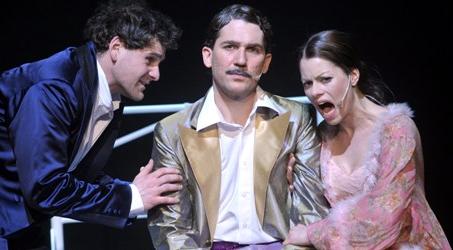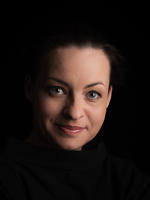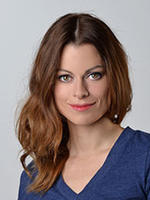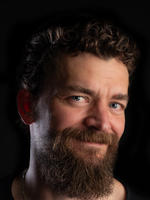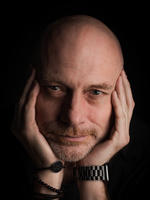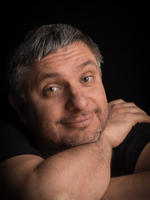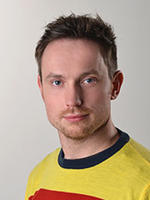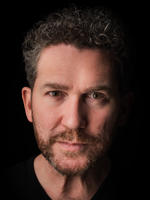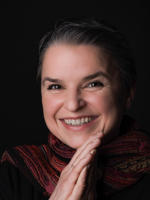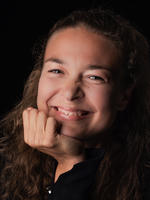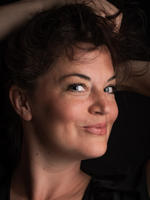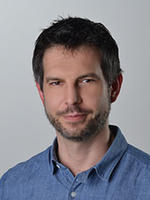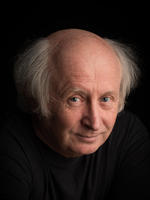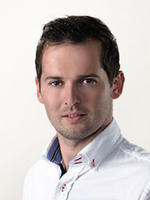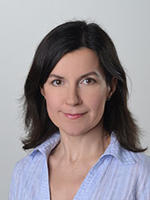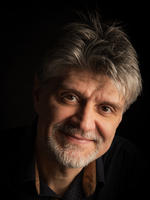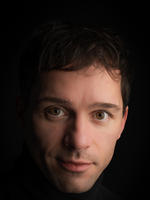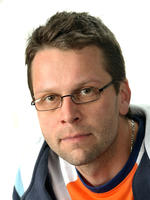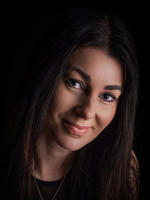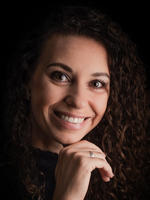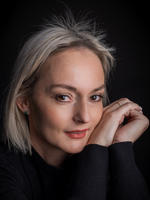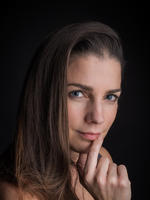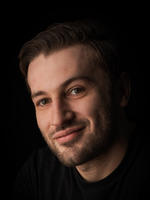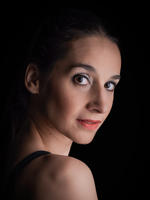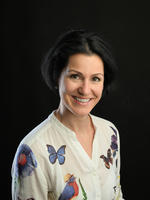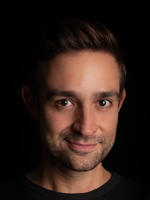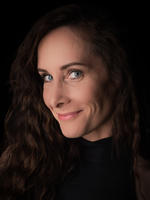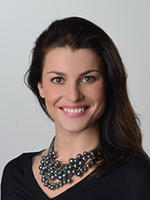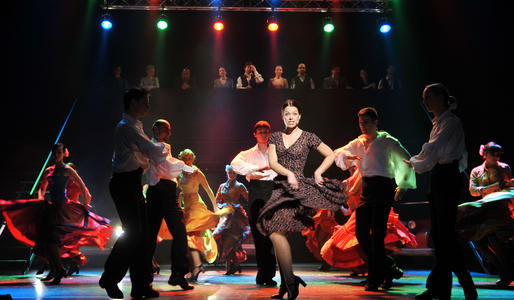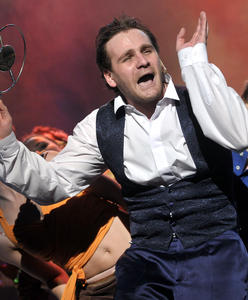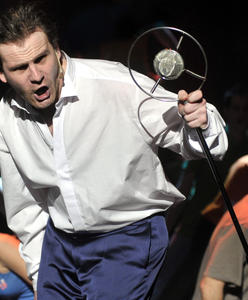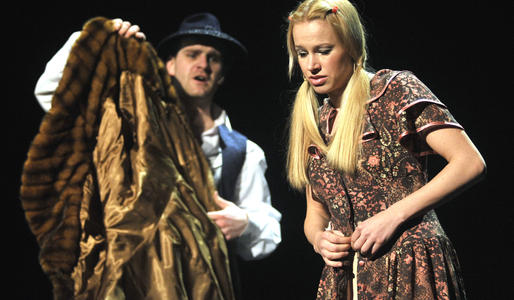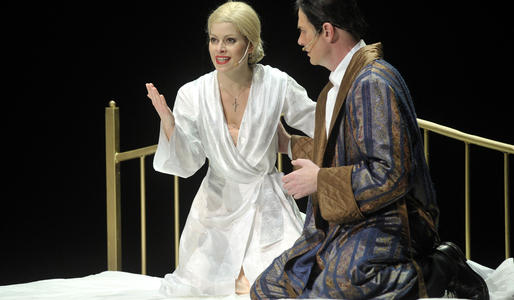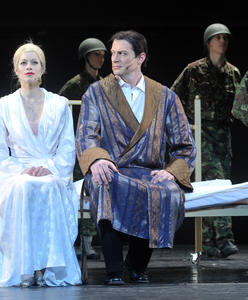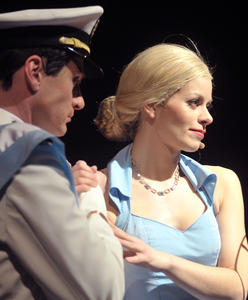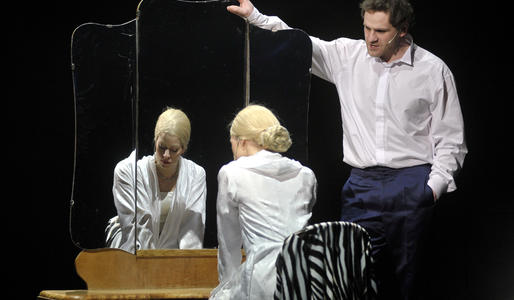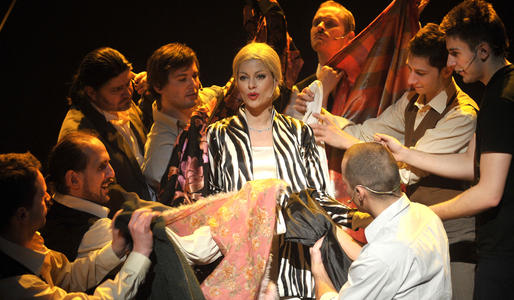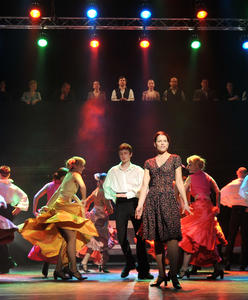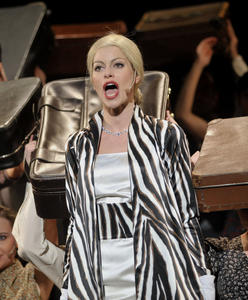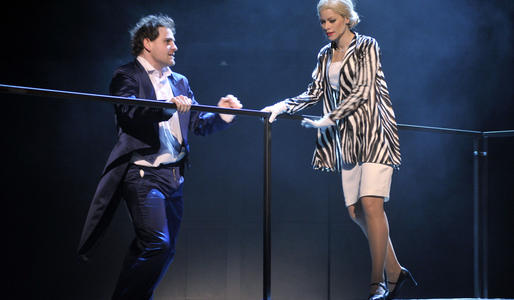Les Misérables, Evita and the others
Vít Závodský 21. September 2009 zdroj Týdeník Rozhlas
In the works offered by the three-ensemble Brno City Theatre, three lines which complement one another can be traced. Perhaps the most obvious one, and perhaps the one most sought-after by theatregoers, is the systematically cultivated musical genre which developed significantly after the opening of the modern Music Stage five years ago. It has been constantly balancing original productions of world famous foreign titles (for example Oliver, The Witches of Eastwick or Fame) with undoubtedly beneficial domestic productions (World Full of Angels, Koločava, Nana, The Red and the Black, The Ballad of Love etc.). Plays from the drama repertoire (which we are leaving aside for today) which enjoy country-wide recognition include, for example, the productions In the Lion's Den, The Death of Paul I and The Three Musketeers.
It certainly isn't easy to bring renowned foreign musicals, limited by agency and producers' requirements, onto the stage of a "stone" theatre. However, the director and manager of Brno City Theatre, Stanislav Moša, is a very good manager with continental 'range' - part of the ensemble acts in parallel to the local one, making European tours or showing certain productions abroad before they are premiered in the Czech Republic. In contrast with many Prague projects, which are put together ad hoc, they have been betting on the discovery of young talents (some roles have up to four alternates) who have been trained by the Janacek Academy of Music and Performing Arts in synthetic drama acting. In the second half of the previous season, two successfully staged premieres of two proven musicals took place in short succession, and each of them deserves closer attention.
Moša fulfilled his artistic dream of many years by producing the work of Alain Boublil and Claude-Michel Schönberg, Les Misérables, with a great translation by Zdeněk Borovec. On a monumental, realistic rather than suggestive set by Christoph Weyers of Germany, and with period costumes by Andrea Kučerová, an impressive three-hour-long fresco based on Victor Hugo's work was created, with the contribution of a large orchestra that artfully combines the personal life stories of the noble convict Jean Valjean (Petr Gazdík alternates with Jan Ježek as a guest), the policeman Javert (Igor Ondříček, Petr Štěpán, Lukáš Vlček), Cosette (Radka Coufalová), the student Marius (Dušan Vitázek) and other characters. The socio-critical, sentimental and also moments of revolutionary pathos are all administered in very careful doses, at a very high professional interpretational level and with dynamic gradation.
The slightly older Evita by the famous tandem Tim Rice - Andrew Lloyd Webber, didn’t slip into kitschy likeability in Michal Prostějovský’s poetic translation, although it remained somewhat in the shade of the humanistic message of Les Misérables due to its more distant topic, epic structure as well as its more sober production approach. In his fifth cooperation with Brno City Theatre, the director and artist Pavel Fieber could use his experience with the German version. The story of the rise of the ambitious Eva Perón (Radka Coufalová, Hana Holišová) up to her position as the first lady of Argentina, loved by the masses, evolves quite coldly. It found a glossarist in the fictitious figure called Che (Ján Jackuliak, Stanislav Slovák, Dušan Vitázek), who contributes to the demasking of the background and political manipulations of the South American dictatorial regime.
Brno's musical producers are also successful abroad
(to) 9. June 2009 zdroj Haló noviny
Even though some Czech journalists usually don't pay much attention to the productions of Brno City Theatre (MdB) compared to those of the Prague musical scene (which is of course incomparably poorer), Brno's producers have had notable and surprising successes even abroad.
This is also true of Brno City Theatre's current success with the popular and still generally successful musical Evita.
Brno City Theatre have, for more than ten years, been a distinct and pivotal phenomenon within our culture and among true experts (not among the handful of ill-wishing, inexpert scribblers, often with strange intentions) they are an unquestionable phenomenon. Since 1995 they have been permanently sold out even though they are able to stage more than five hundred performances in one theatre season. This unheard-of number is reached in no small part due to their foreign tours, and thanks to their musicals the Brno theatre has not only fans abroad but also supporters there among the ranks of renowned, true experts.
While nothing is staged at Brno City Theatre during the holidays, many European cities make the most of the influx of tourists and organise large cultural festivals. Brno City Theatre regularly returns to one of these, at the town of Wiltz in Luxembourg, and every time with a new and normally unbelievably successful title - and this is something not just Prague's Broadway scene can only envy. This year Brno's artists staged the foreign version of the musical Evita at the summer theatre show.
Luxembourg's Festival de Wiltz was founded way back in 1953 at a natural amphitheatre set against the imposing backdrop of Luxembourg Castle. Over the years the arena has been modernised several times. One of these was for example the necessary building of a roof over the stage to protect it from rain. The capacity of the viewing area has remained unchanged, holding no less than a thousand spectators. Every year, over several days, only the very best performances are staged - theatres, well-known orchestras, famous artists... On the programme of this festival there is always music, and in a multitude of forms: classical, jazz, opera and pieces from musicals. The acoustics at that amphitheatre rank among the best in the world, so there is something on offer for every music fan.
Bravo for Evita
This dance musical concerns the life and fate of Eva Perón, the once popular first lady of Argentina (1946 - 1953) and a significant personality in modern history. Renowned Brno director Stanislav Moša began rehearsing it in September last year - at that time with actors chosen at auditions in Munich. This version, with an international cast but a purely Czech production team, had its premiere on 18th October last year in Herford, Germany. Since then, with the exception of two months, it has been constantly on tour. It has been applauded in Austria, Germany, Denmark and Sweden.
The Brno ensemble staged Evita in Wiltz, Luxembourg from 24th to 26th July. All of the repeats were sold-out up front and theatregoers always rewarded their actors with a long standing ovation.
''Brno City Theatre is a great commercial brand. They are playing at our festival for the sixth time already, and they never have problems finding spectators. The director, Stanislav Moša, has an unbelievable talent for choosing actors. They are notable for their acting and singing and at the same time are wonderful dancers. Their output just sells itself,'' commented the press spokesman for the Luxembourg international festival Joss Scheer.
They just keep on going!
The Brno version of Evita still has yet to finish its journey through Europe. They still have eight performances ahead of them in German cities and two in Bozen, Italy. This stage of the tour will be completed on the last day in August in Xanten at the Sommerfestspiele 2009 festival within the beautiful environment of an archaeological park.
Superstar Evita at Brno City Theatre
Naďa Satková 20. May 2009 zdroj rozrazil-online.cz
The composer-librettist tandem of Webber - Rice became famous mainly thanks to the musicals Joseph and the Amazing Technicolor Dreamcoat, Jesus Christ Superstar and Evita. All three of these works are now on the repertoire at Brno City Theatre; the last title mentioned had its premiere on 28th March.
This musical, inspired by the life of Eva Duarte-Perón, who worked her way up from not-very-successful actress to first lady of Argentina, was first performed in the Czech Republic at Prague's Theatre Spirála in 1998. The production team chose Jiří Bryan's translation back then. Under the direction of Petr Novotný and Roman Štolpa, Evita was acted by Radka Fišarová and Tereza Slouková in alternation, while other roles were acted by Jiří Bareš, Dan Bárta, Josef Štágr and Karel Černoch.
The producers from Brno City Theatre chose Michal Prostějovský's translation - his modern translations have a proven track record of success in Brno productions such as Jesus Christ Superstar, Joseph and the Amazing Technicolor Dreamcoat, and Cats.
The producers of the 21st century superstar Evita didn't try to transfer the story into the present. Instead, the director (Pavel Fieber) focused on a credible depiction of the relationships between the central trio of characters - the president, Juan Perón, his wife Eva Duarte-Perón as Evita and the narrator of the events, Che.
The story, which contains such themes as the fight for political power, obtaining the preferences of voters and image building, doesn’t need to be given a thorough makeover: the audience can easily read the parallel with present in it.
The varied costumes (Andrea Kučerová) and simple stage arrangement (Pavel Fieber), which consists of a gallery and two staircases, contributes to the easy portrayal of scenes, as well as the swiftness with which they can be changed. It suggests rather than describes. A bed on wheels where Evita is hugging one of her lovers changes with a simple turn into a car in which she races to welcome the pulsing metropolis of Buenos Aires. Moving platforms also serve as a functional depiction of the "defile" of European countries whose rulers Evita enchanted (during the song called Rainbow Tour).
The journey of Eva Duarte-Perón from the very bottom up to the top of the social ladder probably wasn't absolutely politically correct on every occasion. However, she always appeared at the right spot at the right time and she managed to win the love of the later Argentine president, as well as the favour of crowds. She returned hope to them and the will to fight for a better life, and even now, she remains an untouchable idol for many. In the Brno production, the role of the honored as well as feared "Argentine Cinderella" was acted by Radka Coufalová. Her Evita is a passionate woman who is in pursuit of her goals and has a charisma with which she manages to control the crowds. The ambivalence of this character is reflected in the contrast between her behaviour when fulfilling her stately duties and in privacy. She attracts the attention of potentates with broad gestures and a self-confident posture, but outside the reach of the media and high society, she takes off the mask of an invulnerable woman and dives into her internal world. This is the most obvious in the scene which takes place in Evita's boudoir (composition 'High Flying, Adored') in which the omnipresent commentator Che is a mirror to her both figuratively and literally. Coufalová's Evita doesn't give in but she fully realises the loneliness of a woman who has reached the top. From there all paths lead only downwards.
Che (Dušan Vitázek) isn't a specific historic figure in this production, unlike in some productions where, no doubt inspired by certain world political events from that time, he was interpreted as the revolutionary Che Guevara. Vitázek's Che often stands aside from the greatest turmoil but always in such a way that he doesn't miss a single word from any important conversation. He watches the events and comments on them with irony. His absence from the hot centre of discussions shows his distance and ability to think more rationally than people who are in the centre of political machinations. An energetic desire to change the world is transformed in Vitázek's conception into a non-committal commenting on events. Che knows everything and looks down on the figures who are striving for fame and money in amusement.
Igor Ondříček handled the difficult role of Juan Perón well. He endowed his characterisation of the statesman with decisiveness but yet he doesn't remain only an asexual and tough statesman but also manages to show the other side of Perón's life, which is full of doubt, uncertainty but also love. In his duets with Evita, Perón's toughness dissolves and the expression of feelings and understanding sounds real.
Mária Lalková, in the role of Perón's lover (song 'Another Suitcase in Another Hall'), gained the spectators' interest thanks to her singing and her ability to express the nature of her character during a short moment.
The choreography also has an important task in the production. The dancing symbolizes not only political shifts (during the composition called 'The Art of the Possible', the generals leave the political scene one by one until only one of them remains - the winner of the elections, Perón), but also the cunning "dance between eggs" which Evita used to get up to the position of being the first lady of Argentina.
The famous dance-musical scene 'Waltz for Evita and Che' is meant to be a direct confrontation between these two contrasting characters. In this production, their "dance duel" lacks urgency, as they aren't dancing on a "knife blade" or with open cards; this piece doesn't take the form of a fatal battle but is rather a confirmation of a certain balance of forces.
The introduction of the March premiere made a puzzling impression, as if each of the actors played and sang their own part without any regard to the others. This uncertain beginning was made up for in the finale of the first part of the production in which the musical, singing and acting components combined in the desired symbiosis. Radka Coufalová, Dušan Vitázek and Igor Ondříček excelled in the song 'A New Argentina'. Evita can manage without an over-decorated stage and costumes decorated with gold at Brno City Theatre. The Brno production isn't mere superficial entertainment thanks to the more intimate approach and because acting expression was given priority over cold magnificence.
Les Misérables and Evita six weeks after one another? Why not?
Lenka Suchá 20. April 2009 zdroj Brněnský deník
Brno - The musical ensemble of Brno City Theatre has produced two famous world musicals. In record time, the team around the director Stanislav Moša has managed to produce two contemporary world musical hits - Les Misérables (premiere on 13th February) and Evita (premiere on 28th March). Neither of them is a poor-quality, rushed job - rather, they are well managed, quality productions.
By producing Les Misérables (by Alaine Boublil and Claude-Michel Schönberg), Brno City Theatre has achieved one domestic primacy. The most famous world musical, crowned by many other superlatives (for example, after twenty-three years of continuous performance in London, it is the longest-running musical in history), was produced by a brick-and-mortar repertory theatre in our country for the first time. Until now it was performed only in private Prague productions. The first one, in the year 1992, started a musical boom in the Czech Republic.
It was from that memorable production that Stanislav Moša 'borrowed' the protagonist of the title role to act in Brno. The experienced "Czech Jean Valjean", Jan Ježek, not only acted the runaway galley slave in both of Petr Novotný's productions (the second time was during the renewed premiere in Prague's Goja Music Hall six years ago) but also represented us during an annual meeting of all of the world's representatives of this role at London's Royal Albert Hall.
A member of the Brno ensemble, Petr Gazdík, who handled the demanding singing parts at the edge of musical and opera with admirable assurance, was added as an alternate to Ježek (his 'Bring Him Home', sung over sleeping Mario on the barricades, sends a chill down your spine).
Almost all the members of Brno's musicals section - Ondříček, Štěpán, Mazák, Jícha, Vitázek, Holišová, Sedláčková, Coufalová... - alternated in the other roles (which sometimes had up to four alternates!) Period costumes by Andrea Kučerová (who designed over 500 of them altogether!) fleshed out the characters of the protagonists. The live thirty-five member orchestra under the leadership of Jiří Petrdlík was reliable as a support to the actors. The very naturalistically raw setting didn't allow the story to shift towards oversweet pathos and sentiment which would otherwise be so easy. German scenographer Christoph Weyers helped with its production not only via his three-dimensional set pieces (tailor-made in the Barrandov film studio), but also by video projections and impressive light effects (the final scene of the first half looked as if Moša had borrowed it from Delacroix's famous picture 'Freedom Guiding the People').
Several times, an inventive production shortcut worked very well, like in the situation when the French Tricolor was made from men's shirts and women's underskirts or when protective barricades were made from tables in a pub.
In the case of Evita, the most successful world musical of the end of the seventies and the beginning of the eighties, Brno City Theatre has created what is only the second production of this musical ever seen on the Czech stage (the first was at Theatre Spirála in Prague in 1998). The German director, Pavel Fieber, who has already created several musical productions with this ensemble, came to Brno to produce this famous rock opera with the immortal hit 'Don´t Cry For Me Argentina' by Tim Rice and Andrew Lloyd Webber.
Three actresses shared the role of the charming wife of the president Juan Domingo Perón in Brno. For Radka Coufalová, it is already her third main role this season (after Lena in Inferno, and Snow White). The main credit for the swift course of actions is to be granted to the character of Che as Evita's alter ego. While some world productions identify this imaginary figure with the famous left-wing revolutionary Che Guevara (an Argentine by origin who actually never met the real Eva Perón), Fieber introduces Che as a narrator and demonstrator of the events around Evita. He isn't happy with her actions, and so he comments on them with great verve and vigor. And Brno's Dušan Vitázek does this excellently!
He acts confidently in this role, he changes his costume as well as his acting and vocal styles swiftly, his gestures are natural and yet well thought out. Fieber has also filled some other scenes with cynicism combined with witty symbolism. For example, when Evita makes her way into the middle of the stage during a stunning dancing performance and makes herself comfortable possessively on a mock-up of a Swiss bank.
This two hour-long production moves forward at a stunning speed, models of shiny cars alternate with impressive dance numbers on the stage, which was created by Fieber himself, and slow ballads as well as fast Latin American rhythms and chorals can be heard.
For the musical ensemble of Brno City Theatre, which has successfully produced hits like Cabaret, Hair, Oliver!, Jesus Christ Superstar, Fiddler on the Roof and The Witches of Eastwick within what is only the last five years, it is no problem to produce practically any title.
He left the revolution only in the heads of the audience
(VŽ) 14. April 2009 zdroj Haló noviny
The final premiere on the Music Stage of Brno City Theatre was that of the world-famous musical Evita, from the pens of the well-known British authorial pair Tim Rice and Andrew Lloyd Webber. It was produced by the director Pavel Fieber.
The director, Fieber, commented on his production thus: ''In Germany musicals work just like in America - actors sing and dance, although they don't know how to act. In Brno there are also high-quality actors, which is why I greatly value my cooperation with Brno City Theatre.''
In foreign climes, musicals are more like comedies or plays. The contents of newly-introduced Evita are on a more serious theme. The central character, Che, isn't Che Guevara, but rather more like 'the man in the street'. In Evita everyone is fighting against one another within the social system. Evita is basically building a career, up until the tragic end when she is worshipped like a saint. A political decision is taken to have her body disappear in order that a new place of pilgrimage did not arise, and her body is only found seventeen years later. The man in the street - Che doesn't like it at all, and makes it absolutely clear up on stage that things shouldn't be this way - the way in which the army, the aristocracy and Evita herself behave. At the end this man from the street transforms into Che Guevara and everything moves towards revolution. This is however outside of the performance, only in the heads of the spectators, because the performance has ended. ''This basically political tale is accompanied by an amazing and thrilling dance'', said director Fieber.
Evita's noblesse has the right effect on Brno
Ondřej Doubrava 1. April 2009 zdroj Musical.cz
This year's musical season can without a doubt, particularly by extra-Prague standards, be called a 'season of musical superlatives'. Almost immediately after ''Les Misérables'', during a test period lasting around five weeks the ensemble of Brno City Theatre prepared another legendary title, 'Evita', from the authorial duo Andrew Lloyd Webber and Tim Rice.
(It was seen at the public dress rehearsal and the premiere on 27th and 28th March; the cast was identical on both occasions).
In its way this premiere from Brno City Theatre is the climax of one trilogy extremely important in the history of the modern musical. Yes, all three publicly performed works of the Lloyd-Webber - Rice team became crucial milestones, and without them it is hard to imagine the current state of development of the musical - they are after all at least indirect inspiration for many an author today. Yes, there is their first effort ''The Likes Of Us'', but right now there is only a new workshop recording (test performance) from Sydmonton, where Lloyd Webber has his base.
There has already been one extraordinary concert performance, so a true theatrical production of that work is unlikely to happen. And so there is just the trilogy and ''Evita'' is some kind of climax for it. Perhaps it might be an idea for the Music Theatre to put on a small festival and perform the three works one after another over three days.
Thanks to the genius of librettist Tim Rice, Eva Perón's life story is set out in an original way which makes it totally clear and understandable for the 'casual' spectator who isn't going to search for information in advance on the former first lady of Argentina, a heroine and virtually the patron saint of her nation. Details in this area can be gained from the programme. There are aspects of the story which have been exaggerated or invented, but these 'additions' are beneficial. The strength of the storyline is maintained by Che – the narrator, who devotedly leads us through Evita's life story - he was actually present during all the important events. He has just one fault. He feels unbelievable admiration for her, and even stronger hatred. Everything heads towards mutual confrontation and the final waltz at the cemetery…
The production by Pavel Fieber, a German director and scenographer in one, is an interesting one and hopefully it will look at least a little enticing during this description. By the way, it is really a stage production and thus you won't find the song "You Must Love Me" from Alan Parker's great film adaptation in the performance, and you'll also get to see other changes. The action takes place on a minimalist dark stage, with side staircases and "invisible" doors, with a prominent balcony on which people follow all the on-stage action. Lloyd Webber's great music is there, and on top of that, Vladimír Koubek's choreography is exceedingly energetic and impressive, and Andrea Kučerová's costumes are as beautiful as always. The music production by Karel Albrecht, Jiří Petrdlík and Martin Procházka somewhat diverges from the original genre definition of a "rock opera" due to new arrangements from London, but the "thematic" Latin-American rhythms also have a lot to say - and how much temperament there is hiding behind them!
Michael Prostějovský's translation is also very good, even though it sounds more demanding for listeners than some of his other work. Experts will probably want to compare it with the Prague translation of the work from the Spirála Theatre by Jiří Bryan. My part of the review won't be comparing them; I didn't have the opportunity to see the Prague production of this work back then and I know only sections from it. Thanks to the minimalism of the set, the way they play with the lighting design will catch one's attention. It contributes to the highlights of the evening, which are the songs "Buenos Aires", "The Money Kept Rolling In (And Out)" and, of course, "Waltz for Evita and Che". Also, the slight cooperation with the spectators works wonderfully. For example, Evita hands out her photos to the spectators in the first rows. A great experience is her last radio speech where she speaks to her nation for the last time, already weak and in a wheelchair. Due to the fact that the lights get a bit stronger in the hall during this scene, this moment has an unusual effect - you are simply part of it and Eva Perón is speaking directly to you.
However, some interesting directorial shifts and alterations have more impact on the performance. The biggest one concerns the character of the narrator Che. According to Tim Rice's original plan, he is introduced as a common person from the crowds who keeps pointing out the mistakes of other people, the aristocracy, army and mainly Evita all the time. In Fieber's conception, he literally parodies their every step (thus also unwillingly contributing to the "deification" of the main character) and this sometimes even overlaps into the present ("The Lady’s Got Potential"). Some connoisseurs of the work might find certain parts of this 'lightening' too extreme; the character thus gains in a few scenes, for example during the "Rainbow Tour", a greater comic air than is necessary. However, this will certainly be successful with the spectators and perhaps help with the accessibility of the piece.
As all the action revolves around five main characters, the evaluation of the performances will be relatively brief.
It can be said that Brno City Theatre has a great advantage in that it is a repertory theatre and so the main stars can meet the most fundamental characters of the genre. Dušan Vitázek has, as time goes on, encountered all of the main male roles in the "trilogy". From Jesus, he became in another season that Joseph who got an amazing technicolor dreamcoat from his father, and now it is time for the most complex character - the cheeky guide through the action and glossarist Che. If it wasn't for the brilliant performance of Radka Coufalová, which we will talk about below, it would probably be his one-man show, as he practically doesn't leave the stage. As far as singing is concerned, he is absolutely confident and has fitted a large proportion of the necessary charisma and strictness into the character. He also handles well the above-mentioned directorial shifts in the character, which, even though one doesn't need to agree with them, are natural and self-evident in his delivery.
Two years ago Radka Coufalová obtained the Thalia Award for the role of the Narrator in "Joseph and the Amazing Technicolor Dreamcoat". It must be said that this was a very difficult goal to achieve from all aspects. Evita is a task of comparable or even higher difficulty. Coufalová managed it with the needed grace, and on top of that, she can separate the three changes in the character from a naïve village girl, through a calculating career hunter without consideration for other people, up to the first lady of Argentina. And you may believe me when I say that when she starts speaking to the people for the first time after the most famous aria - "Don't Cry For Me, Argentina" (the people's balcony changes into a part of the President's palace), you will feel a chill running down your spine!
Juan Perón, as played by Igor Ondříček, doesn't give the impression of being a strict dictator but rather a hero of the nation, tired from his rule, with a lot of responsibilities and on top of that, under pressure from his own officers and fearing for the future of the nation. He puts on a very good singing performance.
A role which is appreciated by the spectators, the role of tango singer Augustin Magaldi - the first important lover with his hit "On This Night of a Thousand Stars" - was played charmingly by Jiří Mach.
The last important little role is that of Perón's lover, who would perhaps not be worth mentioning due to her very short time on the stage - only a couple of minutes. However, all is different because she has the beautiful song "Another Suitcase In Another Hall" at her disposal. And Mária Lalková performs it excellently.
"Evita'' is yet another very successful production, featuring masterful performances from all those participating, including the company, with an original interpretation of the topic and an electrifying atmosphere. However, some spectators may find it more demanding than what they are used to. Nevertheless, if you like this legend and if you understand it, you'll certainly appreciate this Brno production.
"Evita" - a season of musical superlatives continues
Pavel Košatka 1. April 2009 zdroj Musical.cz
"Evita" - the rock opera by the famous composer Andrew Lloyd Webber - has seen its second production in the Czech Republic. After the production at Theatre Spirála in 1998 (directed by Petr Novotný), Evita has returned to the Czech stage, this time to the Music Theatre of Brno City Theatre. How did Brno's second premiere of a worldwide blockbuster this season fare?
Excellently! A. L. Webber's music is already almost legendary; all of us have heard the main song "Don’t Cry For Me Argentina" at least once, either on the radio, on the stage or in the well-known film version of the musical. Evita was originally defined as a rock opera. However, the rock is somewhat missing from the musical production led by the conductors of Brno City Theatre and only the Latin-American tunes remain in the dynamic passages, following the example from the latest London production. Don't worry, you will hear the electric guitar but not quite as much as we were used to up to now. Also worth mentioning is the addition of distinct drums which simply cannot be missed.
Those who follow our server carefully know that a different translation was used for the Brno production of Evita, by Michael Prostějovský (at the Spirála, Jiří Bryan´s translation was used). Many of you are probably familiar with the Prague CD so it may feel somewhat unusual to hear completely different texts but Michael Prostějovský has performed, yet again, excellent work and despite some less successful passages (in comparison with Bryan's translation), the Czech libretto is brilliant.
The direction and also scenography was by Pavel Fieber, who has already produced Evita twice - in Dortmund and Karlsruhe. In this case, the stage version is related to the direction. Evita is very minimalist as far as the set is concerned and apart from the basic balcony, we won't see any other scenery, except for chairs, beds, a coffin etc. And it is the empty stage which makes us watch the actors all the time and Mr. Fieber led them, using his experience, in such a way that they managed to fill the empty space successfully.
Radka Coufalová was excellent in the main role of Eva Duarte de Perón. I was a bit worried at the beginning, but she mastered her role completely within the first scenes and gave a great performance as a singer, actor and also dancer. Could there be a new Thalia candidate? The role of glossarist of the action, the ironic opponent Che, was keenly performed by Dušan Vitázek at the premiere. And it is this role which the director has worked the most on, with every scene developed in great detail. The duet with Evita, "Waltz for Evita and Che" is (at least in my eyes) the ultimate demonstration of how musical theatre should be.
In other singing roles, the spectators could see Igor Ondříček (Juan Domingo Perón), Jiří Mach (Augustín Magaldi) and Mária Lalková (Perón's lover). They all performed excellently, and personally, I would like to pinpoint Mária Lalková's small role, with the excellently sung song "Another Suitcase In Another Hall". And obviously, Brno City Theatre has a professional and large ensemble, this time supplemented by a children's choir.
The performance is pushed forwards by dynamic songs (for example "The Money Kept Rolling In (And Out)" and "The Lady’s Got Potential"), in which I yet again noticed the great lighting design Brno City Theatre has. In combination with Vladimír Kloubek's lively choreography, these scenes form the highlight of the performance (which is, by the way, only 2 hours and 10 minutes long, including a break) and you feel like joining the dancing crowd on the stage.
Some of the ideas are also worth mentioning, for example the interaction with the spectators in the first rows to whom Eva gives out her photos, or when Eva was sitting on a building housing a Swiss bank. Andrea Kučerová's costumes also suit the production very well. Again, the brochure (programme booklet) for the musical is very interesting as it not only maps the whole history of the musical Evita but also gets us acquainted with the life stories of the individual characters from the plot. Also, an exclusive interview with the author of the original libretto, Tim Rice, can be found there, as well as the complete Czech libretto by Michael Prostějovský (and so you can compare the individual texts with the Prague recording at home).
Evita at Brno City Theatre really surprised me and it exceeded all my expectations. A.L.Webber's inspired music with the new Czech texts hasn't lost its quality even after all these years - on the contrary, it has been brought to life by the great performance of all the participants. The empty stage is compensated for by the dynamic direction, choreography and lighting design. Don't hesitate - go and see Evita, you certainly won't regret it!
Evita without a halo
Michal Novák 28. March 2009 zdroj I-divadlo.cz
Brno City Theatre are continuing their dream season, at least for fans of great works in the musical genre. After the philosophically-tinged Inferno and the family show Snow White and the Seven Dwarfs (both being original, new Czech musical productions), Brno City Theatre's programme is enriched by two legendary international musicals - Les Misérables and Evita. The latter was created by Pavel Fieber, the acclaimed German director with Czechoslovak roots, at rocket-like speed.
The famous rock opera by librettist Tim Rice and composer Andrew Lloyd Webber didn't exactly have the best prerequisites for success. The text is littered with unpoetic expressions like 'unions', 'elections' and 'vice -president', the theme for the libretto was the real fate of a controversial personality in modern Argentine history, and the whole plot centred around politics. It was however about politics cleverly creating illusory ideals in the eyes of the public and misusing events which attract the masses, which is something which could be an attractive dramaturgical subject.
Pavel Fieber's production focuses most of all on the government's 'image'. Fieber makes their pompous gestures and smiles into the camera lens into a picture of cynicism. The climax is reached during the scene when Evita visits sick children. Evita was not saintly, even though, similarly as with her dramatic opponent (or simply alter ego) Che we cannot avoid admitting that we have also fallen for the titanic personal charm of that fragile, yet dynamic woman, who progresses from her early provincial naivety to stand at the side of the dictator Perón and is almost deified in the eyes of the bewitched masses. If we add to this the demagoguery, shameless manipulation and personal promotion, Eva Perón with all her charisma demonstrates the disturbing fact that, although time has torn down the curtain, these political axioms would seem to be eternal. The accenting of Evita's inconsistency hit its highest point for me personally in the witty scene when ''Santa Evita'', in the midst of crazed dancing rests her rear in a prideful gesture upon the model of a Swiss bank.
Evita is, however, mainly not about politics. After Les Mis, Brno City Theatre has again approached the topic of elementary morals with a significant discourse about dealing with morals in connection with social status. So once again the stage at Brno City Theatre resonates with a theme that is relevant today, and it isn't so crucial that they do it via the libretto and enchanting music of a production that is such a landmark of its genre and so popular with audiences.
If the theme of this musical had to remain only with the rise and sad end of Argentina's first lady in the late 1940s/early 1950s, there wouldn't be much theatrical material and the whole thing would have been reduced to something that seemed like a work of romantic fiction. Librettist Tim Rice therefore placed an imaginary character in opposition to her, named Che (in some international productions of this musical he was interpreted as being the leftist revolutionary Che Guevara). This man of irony, highlighting the comedy that those in power are living in, is almost apolitical in the Brno production - he's basically your average Joe, and this effectively aids the dramatic and thrilling confrontation between him and Eva Perón. The director, Fieber, works masterfully with the stress inside Che himself, who oscillates between hatred and admiration for Evita. We can further notice how this Che repays her in the same coin: it’s a wonder that he doesn't incite Eva to distribute false smiles, and the crowd to the appropriate hilarity - so that they can all have a great time out of it. In this way he unknowingly becomes the engineer of Evita's eventual apotheosis.
Those in the know will certainly notice another variation - a different translation of the text. If you know Jiří Bryan's texts from the performance of Evita at the Spirála in Prague (1998), Michael Prostějovský's text will logically sound unusual to you - it is, let's say, more difficult to follow, less direct, but emphasises the complexities and inconsistencies of the theme.
It was only a matter of time before such an exceptionally well-disposed ensemble (thanks in no small part to Stanislav Moša's managerial work) came face to face with such challenging musicals as Les Misérables and precisely this one, Evita. The difficulty of playing the title role is almost at the level one finds in opera, with recitatives of at least an 'unusual' character and lightning-swift changes in intonation - it is no small task. Radka Coufalová is of course one of the jewels of Czech musical theatre. She coped with the role of Evita masterfully and even in those tricky heights of the role nothing is forced, and her utterances remain fully understandable. She combines demanding choreography with singing in numbers which often follow closely on from one another, and after a while you can't stop wondering where she gets all her energy from. This, when combined with Dušan Vitázek in the role of Che, makes for a superb dramatic pairing. Their duet ''Waltz for Eva and Che'' is the climax of the performance, if not of all musical theatre ever. Vitázek's Che is unceasingly Eva's shadow, commenting, muttering, parodying, making fun of her; the moment is unforgettable when, with a frown, he steps out from behind a mirror like Eva's shadow, but moments come when even he is filled with awe and forgets about his ironic joking, which can seem overdone, although on the other hand the audiences appreciate it.
Igor Ondříček's Juan Perón isn't forced into the mould of a stylised dictator; he's more like a seasoned politician, weary from his responsibilities. The charisma of the character successfully underlines the compelling interpretation of his songs. Jiří Mach also puts on a great show in the role of the 'tango singer' Augustin Magaldi, the character that brings Eva into the 'big wide world'. Mária Lalková also gave an exceptional singing performance in the small role of Perón's mistress. Another sure thing about this performance is the quality of the musical's cast, whether in the dance or choral musical numbers.
Brno City Theatre's Evita is in all aspects equal to the demands of the synthetic genre of musicals. The story is not simply told, and wrapped in music, but is masterfully acted with great verve. Pavel Fieber's interpretation of Evita, including its relatively minimalist conception, is original to a certain degree, and many of those who have seen the film featuring Madonna, or remember the Prague performance, will surely be surprised. Too much hype is actually a bad thing. Try to look at Brno's Evita differently: at the theme which resonates within the story, at the rhythm which pushes the story onward through the cold emptiness, at the music which pleasantly dictates what is happening. Or also at how Fieber makes the most of the great performance and the economical set via creative lighting design. Perfect sound design augments the experience…

